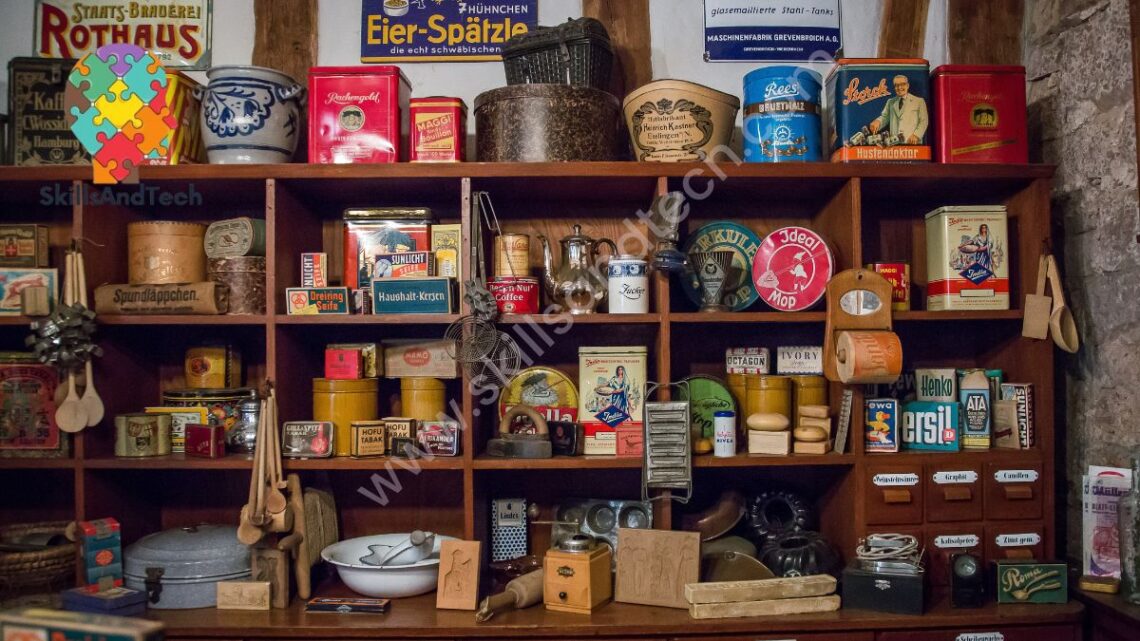
How to Start a Corner Store | SkillsAndTech
A corner store doesn’t have to be on a corner, but it does have to be in an easy-to-reach location that customers can access for a quick purchase. Consider your customers’ needs before going into business for yourself as the owner of a convenience store.
See Also: How to Open a Sprint Store
Table of Contents
How to Start a Corner Store
As with any business venture, your plan to open a corner store should start with a written business plan. Look online for a free business plan template. There are many from which to choose, including those specifically tailored for a corner store, convenience store or bodega. A business plan is essential for obtaining financing for your small business and will guide you through decision making as it relates to the following:
See Also: What is The Difference Between Franchisor vs. Franchisee
- Location, including the decision to build, rent or buy
- Customer access, including parking considerations, sidewalks and proximity to public transportation
- Initial investment
- Operating expenses
- Management and employees
- Identifying customer base
- Opening inventory and ongoing inventory control
- Advertising and marketing
- Projected profits
- Relationships with vendors and suppliers
Licensing and Registration
See Also: What Is The Difference Between Franchise Vs. Sole Proprietorship
Register a new business with the IRS by getting an employer identification number through the IRS website. The application process is free, and you should receive your unique identifier right away.
Licensing requirements vary by state and locality, so check with municipal offices to see what’s necessary where you live. You’ll need special licensing to sell tobacco products and alcoholic beverages. A health department inspection will be required if you sell prepared food items.
Get Small-Business Help
See Also: How Much Does it Cost to Start a Chicken Restaurant
Most communities have a small-business development center that can connect you with business professionals for free, confidential, one-to-one assistance. There are free and low-cost education programs for prospective and existing small businesses, designed to support entrepreneurs through the startup and management of their business.
The Small Business Administration is a federal program created to advise and support entrepreneurs and small-business owners. The SBA makes low-cost loans and can assist you in arranging other types of financing. Like small-business development centers, services offered through the SBA are free.
See Also: How to Start a Medical Uniform Franchise
Franchise Opportunities for Convenience Stores
The best-known national chain of convenience stores is 7-Eleven, and despite the name, many locations are now open extended hours and even 24 hours. Visit the company’s website to begin the application process. The franchise requires minimum liquid assets of $50,000 to apply, and there may be higher costs in California and New York depending on location.
Consider regional chains when looking for a franchise opportunity. Examples are New England’s Cumberland Farms, Oklahoma’s QuikTrip and Casey’s General Stores in the South and Midwest. Visit the website of the franchise that interests you to learn more about costs, financing and other requirements.
See Also: How to Sell a Franchise Idea
As an alternative to buying a franchise, look at classified ads online and in print to see if you can find a small convenience store for sale. When you consider purchasing an existing business, ask the current owner questions such as, “Why are you selling?” and “Will you work with me for a few weeks to a few months to help me get started?” Ask to see current and historical financial statements so you can assess the financial health of any business you consider purchasing.
Pros and Cons of Owning a Convenience Store
See Also: What Is a Public Franchise
The two biggest advantages you’ll have when you open a corner store are the opportunity to provide an important service in your community and the chance to be your own boss. Even with online ordering and same-day deliveries from local grocery stores, convenience stores remain a go-to destination for many people, selling items such as household products, prepared fast-food items, beverages, bagged ice, tobacco products and lottery tickets. Some convenience stores also have gas pumps.
A drawback to owning a convenience store is long hours. The “convenience” in the name applies to your customers, and you may need to be open early in the morning, late at night and on weekends and holidays. You’ll need to hire employees to help you in the store, particularly for those times when you cannot be there yourself.






2 Comments
Pingback:
Pingback: